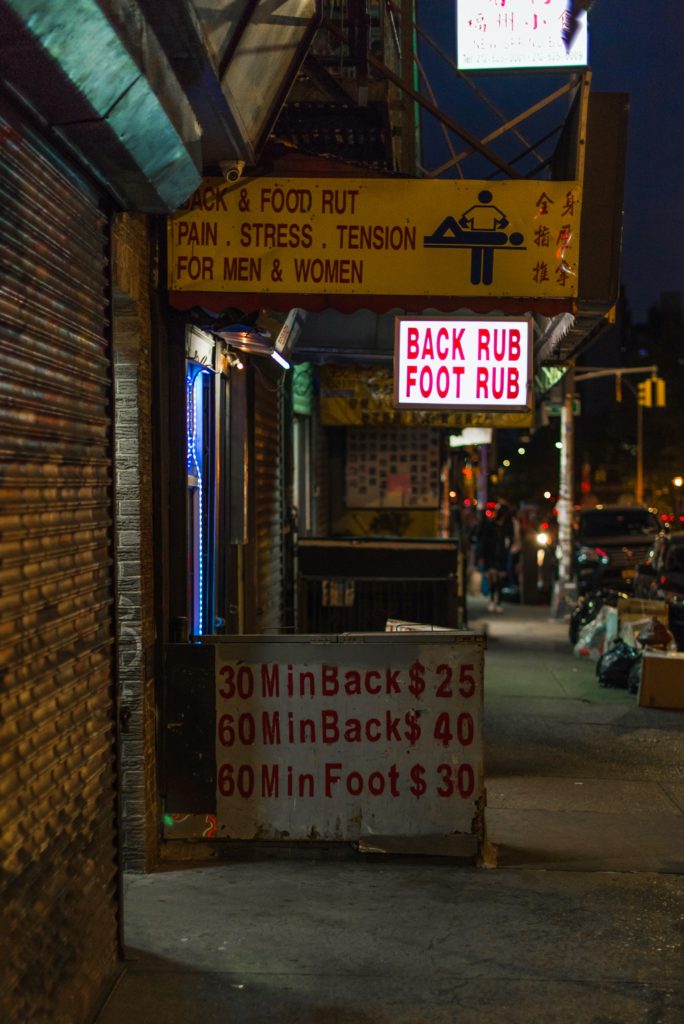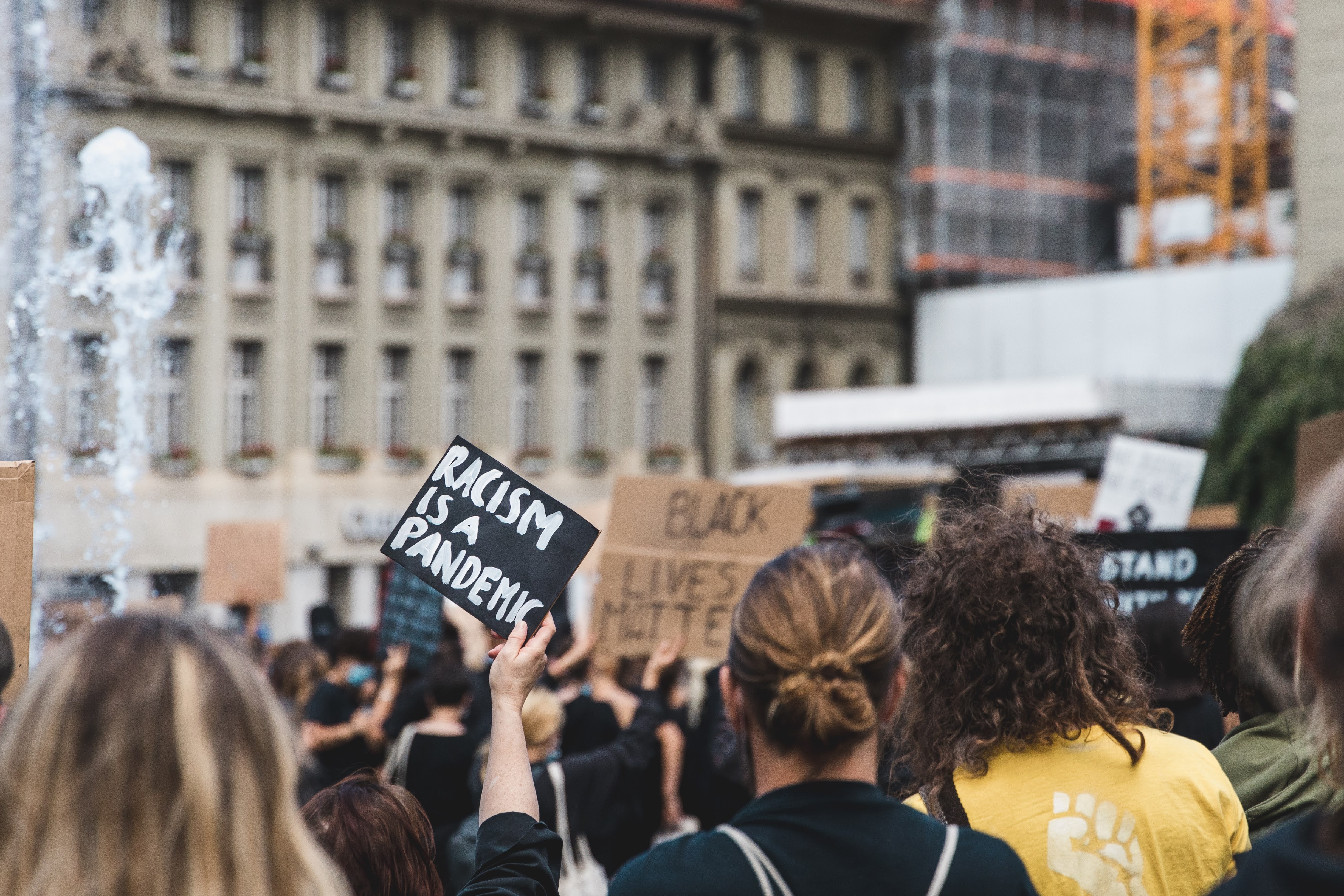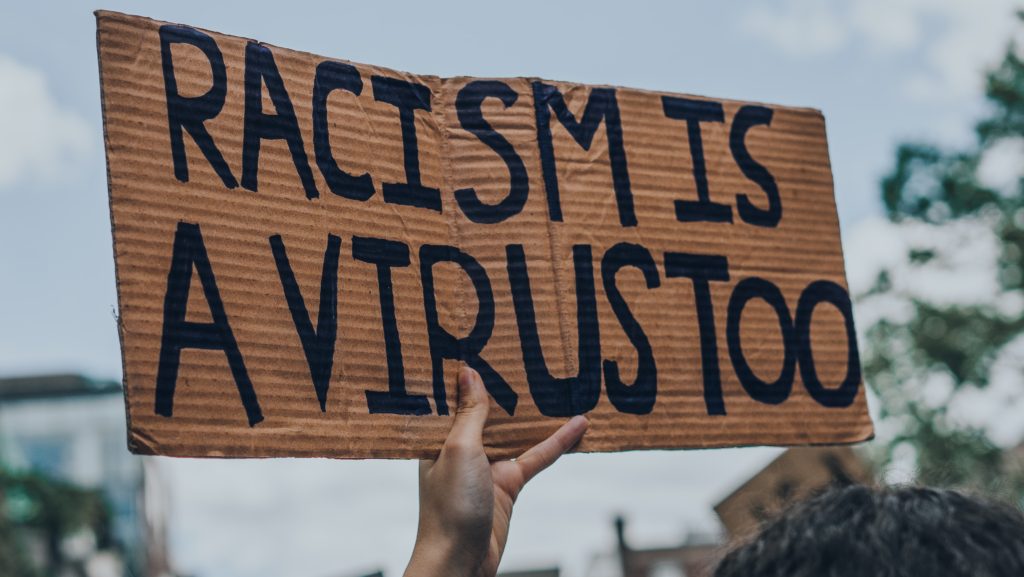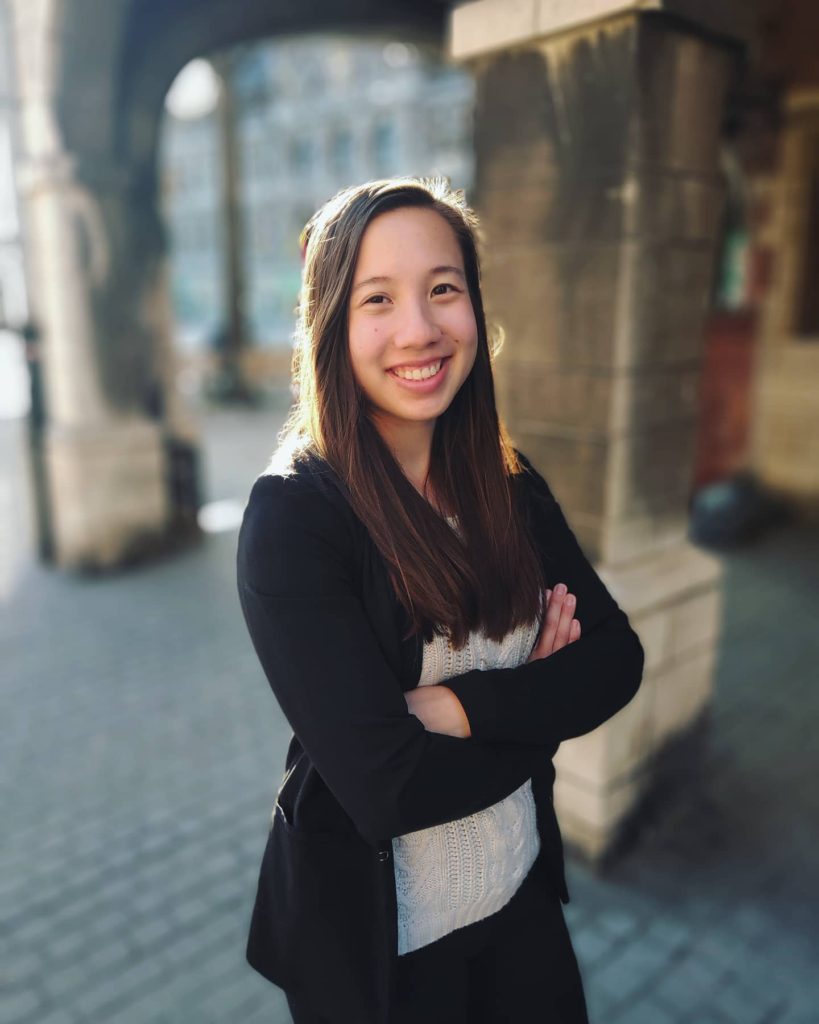Abriel Schieffelers is a human rights advocate who has worked with Asian migrant women in both the US and Europe. She speaks about the exploitation of Asian women and the importance to look beyond to understand the complexities of the vulnerable situation of sex workers and victims of trafficking.
by Abriel Schieffelers/ Photo by Rolande PG at Unsplash
On March 16th, six Asian women were murdered by a white man in Atlanta massage parlors. During a time when people have been gradually coming to an understanding of the growing xenophobia and discrimination against the Asian diaspora, the event was crucially labeled in the news as being racially motivated. However, missing in the initial media analysis was an understanding of the primary vulnerability at play: it was not simply the victims’ Asian identity, but their identity as Asian migrant sex workers and trafficking victims.
The events that transpired that day stem from a complex intersection of gender, race, and colonialism. For instance, the modern day fetishization and hypersexualisation of Asian women is rooted in a long history of exploitation of Asian women. This began during colonialism and led to the Page Act of 1875 barring Asian women from migrating to the United States on the presumption that they were all prostitutes, and later manifested in the proliferation of brothels for American military bases in the Philippines, Thailand, and beyond. Sex tourism in Asia has become a major industry.
The events that transpired that day stem from a complex intersection of gender, race, and colonialism.
Media has already widely reported that the massage parlors were registered as legitimate businesses, but many are unaware that the businesses were also registered on various online websites that list establishments that offer sexual services.
Sex work in the US is illegal but commonly offered under the table at legitimate businesses, which ultimately means that there is no regulation or protection provided for sex workers. Raids on massage parlors by police in full riot gear to determine if an illicit activity is happening is a common and traumatic occurrence.

In 2015, the Minneapolis police department made the decision to end massage parlor raids because undercover officers were discovered to have engaged in sexual contact with massage parlor workers on multiple occasions. None of the three officers involved in the cases were reported to be under internal investigation and were instead defended by the Minneapolis police union, who said that they were following department policy for undercover officers. The massage parlor workers in these cases were arrested. For women who have had damaging interactions with police and carry the stigma of prostitution charges, lack of trust in authorities and inability to find alternative employment leads to the near impossibility of leaving situations of trafficking or sex work.
As a social worker who has provided assistance for Asian migrant women in both the US and Europe, I have met hundreds of women who have been trafficked for sexual services or perform sex work under various degrees of consent. Their experiences as Asian women working in a highly unregulated and unprotected sector result in an extreme power imbalance and inherent violence.
While there are Asian women who work in normal massage parlors or massage parlors that provide sex work willingly, even this work must be acknowledged as a form of work that is physically draining, and where women are subjected to propositioning or violent abuse from clients. However, a large number of massage parlors are part of vast webs of criminal enterprise, where Asian women are lured from Korea and China with the promise of a good job, and then forced to pay back debts by performing sex work for no or little pay. Their passports are confiscated and they are left dependent on their traffickers.
For sex workers and victims of human trafficking who are exploited in massage parlors, violence is an everyday reality. Cameras at the entrance of the shop offer a veneer of protection, as women are able to check before they let in clients. However, the majority of women I worked with have experienced beatings, sexual assault, and robberies from clients. On top of the terror they experience from law enforcement, their boundaries are violated by clients, and they experience verbal harassment and abuse on a near-constant basis.

If they are trafficked, they often live in the massage parlor in cramped quarters with little access to the outside world or command of the local language. Irregular or precarious immigration status leads to further insecurity and control leveraged against them by traffickers or authorities. They are warned that if they attempt to escape or testify against their traffickers that their family back home will be harmed. Traffickers shuffle women between networks of massage parlors, making it difficult for them to establish support networks or be tracked by authorities.
This bleak picture is not meant to detract from the vibrancy and complexity of the experiences of Asian migrant women working in massage parlors. Many have families whom they work to support tirelessly. They have hopes and dreams and names that should not be forgotten. They form a tight-knit community with the women with whom they work, sharing food and make-up and stories. They have agency despite the forces at work to dehumanize them.
It is an outpouring of grief and solidarity that has been sorely needed on behalf of the Asian diaspora, but this deluge of pain also requires deep reflection regarding the intersectional layers at play.
In the wake of the horrific murder of these six women, the Asian community has rallied on social media, calling on society to wake up to the oppression faced by Asian Americans and stand up against white supremacy that has emboldened such actions. It is an outpouring of grief and solidarity that has been sorely needed on behalf of the Asian diaspora, but this deluge of pain also requires deep reflection regarding the intersectional layers at play.
In order to truly stand in solidarity with the six women who tragically lost their lives, we need to acknowledge the disparities in privilege within the Asian diaspora. Many highly educated second generation Asian Americans are unaware of and far removed from the realities of migrant sex workers and trafficking victims. For many Asian Americans who have been raised to see America as a land of endless opportunity if you simply work hard enough, it is difficult to reconcile our idealized picture of America with one that houses exploitation at our local suburban strip malls. It is therefore not enough to denounce only the racism inherent in our communities’ power structures and institutions: we must also contend with the deeply embedded capitalist, colonial, misogynist, and racist strongholds that render the bodies of Asian women as exotic commodities to be bought and sold – and in many countries, criminalized for doing so.

It is imperative that the ongoing activism by Asian diaspora and allies centers the oppression of Asian migrant women sex workers and trafficking victims, pushing against narratives that position all Asians as a monolith. Rather than dividing, our common experience as Asian ought to drive us to deep empathy and action on behalf of those who have been most harmed. Identifying only a single thread, rather than the entire cord of the noose around our collective necks, will not free us. Civil rights activist Fannie Lou Hamer put it this way: “Nobody’s free until everybody’s free.”
We must prioritise real action and real change for Asian migrant sex workers and trafficking victims. Until then, none of us will be free.
Today, tomorrow, and the day after tomorrow, Asian women will go to work in dangerous conditions, facing physical harm and abuse in massage parlors that stand unassuming in our neighbourhoods. They will be labelled in advertisements as exotic, hyper-feminine, and submissive. They will continue to face degrading abuse from men emboldened to see them as sub-human. What can we do?
Our activism can and ought, to begin with, a basic understanding of the ways all Asian Americans and diaspora have been othered and brutalized, but it must move to greater recognition of those most threatened by the deadly intersection of racism and misogyny. We must prioritise real action and real change for Asian migrant sex workers and trafficking victims. Until then, none of us will be free.
For more information, resources, and where to donate, please visit:
http://www.asianpacificpolicyandplanningcouncil.org/staff/api-human-trafficking-task-force/
https://www.redcanarysong.net/
https://www.nytimes.com/2019/03/02/us/massage-parlors-human-trafficking.html
Sources:
https://www.history.com/news/chinese-immigration-page-act-women




